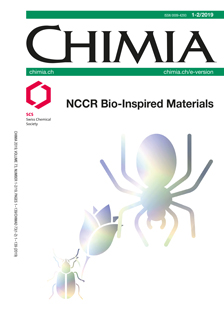A Bio-Inspired Amplification Cascade for the Detection of Rare Cancer Cells
DOI:
https://doi.org/10.2533/chimia.2019.63PMID:
30814001Keywords:
Amplification, Breast cancer, Fibrin, Hybridization, In vitro diagnostic, NanoparticleAbstract
The main cause of cancer-related death is due to cancer cell spreading and formation of secondary tumors in distant organs, the so-called metastases. Metastatic cancer cells are detectable in the blood of cancer patients as circulating tumor cells (CTC) and may be exploited for prognostic and monitoring purposes, including in breast cancer. Due to their very low frequency, however, their quantitative detection remains a challenge in clinical practice. Nature has developed mechanisms to amplify rare biological events or weak signals, such as intracellular signaling pathways, cytokine networks or the coagulation cascades. At the National Center for Competence in Research (NCCR) in Bio-Inspired Materials we are coupling gold nanoparticle-based strategies with fibrinogen and DNA bio-inspired amplification cascades to develop an in vitro test to specifically and sensitively detect CTCs in patients' blood. In this article, we describe the biological context, the concept of bio-inspired amplification, and the approaches chosen. We also discuss limitations, open questions and further potential biomedical applications of such an approach.
Downloads
Published
Issue
Section
License
Copyright (c) 2019 Swiss Chemical Society

This work is licensed under a Creative Commons Attribution-NonCommercial 4.0 International License.







